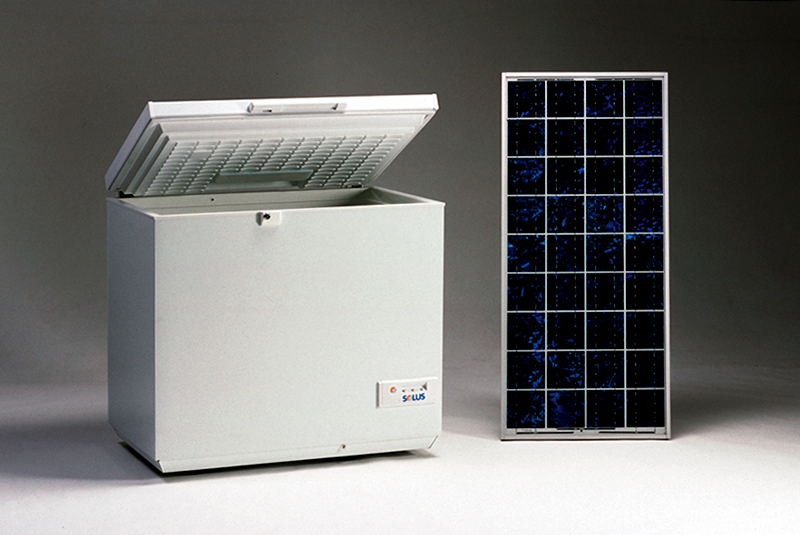A solar refrigerator can be a perfect solution for your off-grid living needs.
A solar refrigerator can be a perfect solution for your off-grid living needs.
Blog Article
Opening the Possible: How Solar Refrigerator Can Transform Your Energy Consumption
The development of solar fridges offers an engaging opportunity to improve our method to power intake. By successfully using eco-friendly solar power, these systems assure not only to minimize reliance on conventional power sources yet likewise to improve food preservation and protection, especially in underserved areas. As we discover the details of exactly how solar fridges run and their broad-ranging advantages, it ends up being obvious that their assimilation into everyday life can result in substantial advancements in sustainability. What stays to be analyzed are the sensible effects and selections customers should think about in this developing landscape.
How Solar Refrigerators Job
Solar refrigerators operate by using solar power to power their cooling systems, effectively using renewable energies to keep low temperatures. These systems usually consist of photovoltaic (PV) panels that convert sunshine right into electrical energy. This power is then used to run the compressor, follower, and other parts essential for refrigeration.
The main system in a solar fridge is the vapor-compression cycle, comparable to conventional fridges (solar refrigerator). The compressor presses cooling agent gas, elevating its temperature and pressure. This gas then travels via a condenser, where it launches warmth and condenses into a liquid state. The fluid cooling agent moves right into a growth shutoff, where it swiftly broadens, cooling off prior to entering the evaporator. In the evaporator, the cooling agent takes in warmth from the inside of the refrigerator, hence decreasing its temperature.
Solar fridges might also include battery storage systems, allowing them to operate throughout non-sunny hours or in cloudy problems. This makes sure a continual cooling effect, making them appropriate for different applications, particularly in remote areas lacking access to reliable power. By incorporating solar modern technology, these fridges contribute to power efficiency and sustainability in food storage space and conservation.
Key Benefits of Solar Refrigeration
The assimilation of solar modern technology right into refrigeration systems supplies numerous benefits that extend past mere power savings. By taking advantage of renewable solar energy, these systems lessen dependence on fossil fuels, contributing to a much more lasting atmosphere.

In addition, making use of solar energy can bring about energy self-reliance, allowing individuals to produce their very own power and lower vulnerability to varying power costs. On the whole, the fostering of solar refrigeration presents a complex solution that not just addresses power intake but also advertises environmental sustainability and enhances food preservation abilities in underserved neighborhoods.
Power Financial Savings and Performance
With the rising expenses of energy and boosting recognition of ecological problems, energy financial savings and efficiency have ended up being crucial factors to consider in refrigeration technology (solar refrigerator). Solar refrigerators utilize eco-friendly energy sources, significantly decreasing dependence on conventional electricity grids. By harnessing solar power, these systems minimize energy intake, making them an economically practical alternative for both residential and business applications
The layout of solar fridges integrates sophisticated insulation materials and energy-efficient compressors, which make certain optimum efficiency while utilizing very little power. Many solar refrigerator versions additionally include programmable settings and clever modern technology that permit individuals to monitor and manage energy usage properly. This smart layout brings about decreased electrical power expenses and lower functional costs over time.
Furthermore, solar fridges are geared up with batteries that keep excess energy generated throughout sunny days, making it possible for continuous operation also throughout periods of reduced sunlight. This capacity improves their performance, guaranteeing that food and disposable things are regularly maintained secure temperature levels.
Environmental Influence and Sustainability
Harnessing eco-friendly energy not only boosts energy financial savings yet additionally considerably contributes to environmental sustainability. solar refrigerator. Solar refrigerators operate clean, renewable power sources, minimizing dependence on nonrenewable fuel sources that contribute to greenhouse gas exhausts. This shift in energy usage mitigates environment change influences and fosters a healthier planet

Additionally, solar refrigerators are especially useful in remote locations where electrical power gain access to is limited or non-existent. By providing a viable refrigeration solution without the requirement for substantial infrastructure, they promote lasting development in underserved communities. This ease of access not content only improves food security yet also decreases food wasting, thereby reducing waste.
Choosing the Right Solar Refrigerator
Picking the suitable solar refrigerator needs cautious factor to consider of numerous elements to guarantee optimal performance and effectiveness. First, analyze the power requires based upon your usage patterns. Determine the complete wattage needed to keep your items cool, which aids in picking a device with an appropriate solar panel dimension to fulfill these demands.

An additional important aspect is the kind of solar fridge-- compressor or absorption. Compressor designs are usually much more effective and better fit for settings with varying temperature levels, while absorption refrigerators may be better for off-grid applications as a result of their simpleness.
Last but not least, guarantee the unit has reliable solar components, including panels, batteries, and a fee controller, to assure long-term functionality. By very carefully considering these elements, you can select a solar fridge that straightens with your power goals and contributes to lasting living.
Verdict
In recap, solar fridges stand for a significant development in power intake, supplying a lasting alternative to conventional refrigeration methods. By utilizing solar power, these systems not just minimize dependence on nonrenewable fuel sources yet you can try this out additionally improve food protection and decrease ecological influence. The assimilation of innovative modern technologies ensures efficiency and cost-effectiveness, promoting energy self-reliance. As the adoption of solar refrigeration increases, a transformative shift towards cleaner power techniques and lowered food waste is anticipated, contributing favorably to international sustainability initiatives.
Report this page